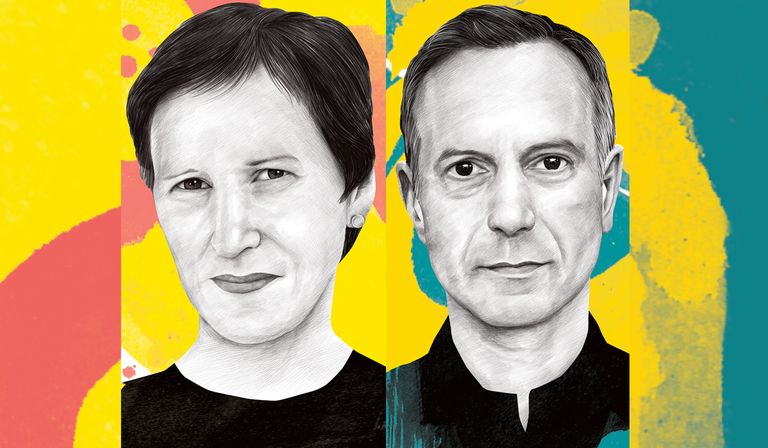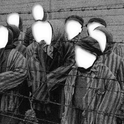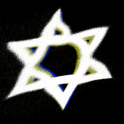Alona Ferber, senior editor: People often don’t understand what is and isn’t antisemitic. We want to talk about why it’s so confusing. This isn’t a debate about whether antisemitism is or isn’t a problem. One of the key points of confusion seems to be around what is or isn’t antisemitic when it comes to criticism of Israel, the world’s only Jewish-majority state. How do you explain the difference?
Dave Rich, head of policy at the Community Security Trust: I’m going to do the classic Jewish thing of answering a question with a question, which is to go back a stage and say, when is discourse about Israel criticism and when is it not criticism? Because the phrase “criticism of Israel” gets applied to a vast bundle of hostile language, some of which falls squarely into the basket of ordinary political opposition and critiques, and some of which falls into a discourse that doesn’t really ever get applied to any other states, a discourse that revolves around Israel’s legitimacy and its existence. Challenging the existence of a state isn’t a form of criticism, because how do you answer it? The only answer is to not exist. I think we need to separate this out, instead of just saying, well, there’s criticism of Israel and there’s antisemitism. I think in between those two poles there’s a whole spectrum of language, activism and behaviour in the way people relate to Israel that is a bit weird, sometimes unique, sometimes justified, sometimes not. And within all of that, some of it is antisemitic. It’s not as simple as just saying, this is criticism, that’s antisemitism and there’s a deep blue sea between the two.
The image of the satanic, child-killing Jew is deep in the antisemitic lexicon
Alona: How do you explain that difference within the part of that spectrum where there is antisemitism?
Dave: As a rough rule of thumb, would you say the same thing in the same way about another country, especially another democratic, western-orientated country or another ally of the west that is doing the same things? If the answer is yes, then that’s pretty normal. A lot of what gets said about Israel isn’t. There’s a whole history of language and imagery about Jews that is part of our cultural heritage, some of which informs—sometimes explicitly, sometimes implicitly—some of the ways in which people talk about and relate to Israel. That’s when you stray into conspiracy theories, when you stray into the very old, almost medieval image of the bloodthirsty, satanic child-killing Jew that is absolutely deep in the antisemitic lexicon. Sometimes it’s difficult to parse these things. But I think it comes back to that basic point. Is there something unique, something different, something frankly weird about some of the things that get said about Israel? Or are people relating to what they see Israel doing in the same way that they would, whoever was doing it?
Alan Rusbridger, editor: Jo, how would you answer that?
Jo Glanville, editor of Looking for an Enemy: Eight Essays on Antisemitism: I agree. There is this wellspring of antisemitism that goes back a thousand years in Europe (see David Edgar, p44). There is, for example, the child-killing Israeli. Today you will see posters of Israelis, someone in Israeli military uniform, but with the kind of Der Stürmer, Nazi-style face with blood dripping from their mouths, which absolutely evokes the old medieval accusation of the blood libel, that Jews murder babies, Christian children, for their blood. Because Israel is the Jewish state, because of the antipathy towards Jews that runs through European history, all these old images get triggered by Israel. There is a level of emotion that we see at the moment—obviously what’s happening in Gaza is horrifying and we are all horrified by it—but when the Israeli army does this kind of thing, there’s a level of imagery and reference that you don’t see in relation to other countries.
For example, in the very early days of Israel’s assault on Gaza, I remember reading that this was an unprecedented attack on global norms, and I just thought to myself, has everybody forgotten Syria with more than half a million dead, when Barack Obama said that if the Assad regime crossed the red line of using chemical weapons, we will move—and they didn’t move? You look at Saudi Arabia next door, Iran, Egypt. None of this is to condone what Israel is doing, because I utterly condemn it, and I’m utterly horrified by the suffering and by what happened on 7th October 2023. But it’s highly noticeable that no other country elicits that same level of very, very high emotion, and I think it’s partly explained by the history of antisemitism. I think it’s also explained by Israel itself, because Israel is not just any old country. The idea of the Holy Land has existed in the imagination and religion of Christianity and Islam for centuries. If you’re a fundamentalist Christian, you think that the creation of the State of Israel is a fulfilment of a prophecy that will lead to the Second Coming. This is a country that also exists in the sphere of imagination and history, so everything is heightened.
Alan: You’ve gone to the question of legitimacy: is it antisemitic in itself to question the legitimacy of Israel? I was looking at the different definitions of antisemitism. There’s the Jerusalem Declaration, which says it is not antisemitic to point out systemic racial discrimination. Thus, even if contentious, it’s not antisemitic in and of itself to compare Israel with settler colonialism or even apartheid, whereas the International Holocaust Remembrance Association (IHRA) definition says denying Jewish people their right to self-determination, for example, by claiming that the existence of Israel is a racist endeavour, is antisemitic. Where would you position yourself between those two definitions?
Dave: Both those definitions say that the kind of language you described might be antisemitic, depending on the context. I think that’s an important distinction. I come back to the uniqueness of this debate, which goes from what’s happening in Gaza to the idea that Israel has lost its legitimacy and should never have been created. That is never said about any other country, no matter what they do. It doesn’t matter what Russia does in Ukraine, no one says, let’s just get rid of Russia. It doesn’t matter what happens in Yemen, in the Yemeni civil war, no one says, well, Saudi Arabia and the UAE were creations of the British Empire, they’re not real states.
When it comes to Israel, you have this movement that jumps to questioning its legitimacy. Not all Israel’s opponents do this, but some do campaign for the eradication of a nation state against the wishes of the vast majority of its citizens, and tell those citizens that their national identity is not a valid national identity, and it must end. That is inevitably going to be a racist political campaign towards Israelis as a nationality. Now, how much has that been informed or shaped by antisemitism? How much it engages antisemitism is a bit of a subjective debate. Some people will say it’s identical and other people will say it is completely separate. I think they overlap, they connect with each other. They inform each other. But essentially, again, it comes back to this uniqueness. There are ways in which people can have a very valid, abstract, theoretical academic discussion. Would it be better if the political arrangements for Israelis and Palestinians were this, not that? That’s normal.
Alan: Isn’t the difficulty that there are moderate people who were perfectly happy with the 1967 Israel and never would question its legitimacy—they absolutely welcomed it, thought it was necessary—but, given recent events, have begun to think: if it’s a precondition of Israel that it clears out Gaza and reclaims the West Bank, that’s not something that I ever signed up to support?
Jo: We’re seeing the most extreme government of Israel in Israeli history, but if you’re going to object to what Israel is doing, you could argue that at every single point in Israel’s history. It’s well known that, in the creation of Israel, Palestinians were driven out of their towns and there were massacres and Palestinians were terrified into leaving. It’s very well documented and Israeli journalists and Israeli historians have written about this significantly. So you can say the problem is actually 1948, when Israel was established, or you can decide where you want the problem to be.
Obviously, what’s happening now is particularly horrifying, but at every moment of history terrible things have happened. This is a massively complex issue for multiple reasons, and the difficulty of defining it is enormous. They’re not set in stone, these definitions. That’s partly what makes them problematic, because certainly the IHRA definition has been adopted by multiple public bodies, but there is room for discussion and debate around some of the definitions. As we’ve already touched on, the IHRA gives one example: denying Jews the right to self-determination and saying that the State of Israel is a racist endeavour. There are big echoes there with the famous “Zionism is racism” statement, which was anti-Israel propaganda from the Soviet Union, but you can certainly make a legitimate argument that Israel is racist and [point to] its discrimination against Israeli Palestinian citizens and its treatment of Palestinians in the West Bank and Gaza, without being antisemitic.
Alona: Where do you sit between these two definitions?
Jo: I suppose I’m more inclined to the Jerusalem Declaration than the IHRA because my worry with the IHRA is that it does limit speech, depending on how it’s interpreted. You’ve got to have people who know what they’re talking about to interpret it. And does everybody who has it in front of them have all the information to interpret it?
It’s not clear cut. It’s not just about race, it’s about religion and ethnicity
Alona: There’s a parallel process with Islamophobia, multiple definitions of which also exist. Why do those two -prejudices need definitions? How useful are they?
Jo: Because it’s not clear cut. Because it’s not just about race, it’s about religion and it’s about ethnicity. And obviously in the case of Islam, multiple nationalities around the world are Muslim. It’s not clear cut, and that’s why it’s so complex.
Dave: If you look at the origin of the IHRA, it started as a definition by the European Union Monitoring Centre on Racism and Xenophobia in the early 2000s because Jewish communities in the EU were reporting really high levels of antisemitic hate crime. During the Second Intifada, we were actually seeing a very similar dynamic to what we’ve seen since 7th October. They were lobbying their governments for action. The EU discovered to its horror that most of its member states did not record antisemitic hate crime. They just simply didn’t know how much was happening, so there was a directive to monitor and record it. There was an idea, which I think made sense, that if all these police forces are going to start recording antisemitic hate crime, they should have a common definition. So it began as a data collection tool for law enforcement and for civil society organisations who monitor hate crime. It’s meant to be a practical tool. It was never written to be law, and it was never written to be a speech code.
A lot of public sector bodies and civil society organisations have found it a useful guide. If you have a complaint about antisemitism in your organisation, how do you know whether the language is antisemitic or not? It gives examples of what it might be. You need to investigate yourself. That’s basically what it does, and it’s proven useful. But like any tool, if you use it well, it’s really good. And if you use it badly, it’s not right. If you hit a nail with a hammer, you hit it square into the wall, that’s great. If you hit your thumb, it hurts. It’s the same thing.
Alan, I’m really interested to hear you say that the IHRA definition says you can’t describe Israeli policies as racist. There’s actually nothing in the definition that says it’s antisemitic to describe Israeli policies as racist. What it says is that it can be antisemitic to deny the Jewish right to self-determination and an example of that denial might be to call the entire existence of the State of Israel a racist endeavour. Not that the practices and policies of the Israeli state, or of a particular Israeli government, might be racist in the way it treats Palestinians.
Alan: Is it an extreme thing to say that the Israeli government clearing all Palestinians out of Gaza would be a racist endeavour, if that happened?
Dave: I know a lot of Jews, a lot of Zionists, who’ve called that plan ethnic cleansing. I don’t consider that antisemitic. But opposing this particular plan or that particular policy or action is different from arguing that the entire existence of the state is a racist endeavour. I think there was a hope that having a definition would settle the argument about what is antisemitism and what isn’t. And we very much learned it doesn’t settle the argument. In some ways, it actually fuels the arguments. And what has happened is people who are very, very supportive of Israel and people who are very, very opposed to Israel have found a consensus position where they over-interpret. On one side, they hope the definition will shut down a whole range of attacks on Israel and on the other side, they fear it will shut down that same discourse. If you read the definition in its actual text and look at how it’s meant to be used, it doesn’t actually shut down a lot of the things they hope and fear it will.
You can make an argument about whatever it says in text; how it’s used in practicality is actually what matters. It’s not a perfect definition. One of the problems is there’s not really space to sharpen it and amend it in a positive, useful way because there’s so much pressure from people who want to get rid of it because, frankly, they want to be able to say whatever they like about Israel. They don’t like being told that some discourse about Israel can be a bit antisemitic sometimes. That’s all it says, really. But some people don’t like to be told that, and so the debate over it is so heated. There’s not really the space to say, “How can we improve it”?
Alan: Jo, you wrote a piece for us about the the band Bob Vylan chanting “Death to the IDF” [Israel Defence Forces] at Glastonbury. You didn’t think that was antisemitic. But Dave, did you think it was?
Dave: I thought the question about whether it’s antisemitic or not misses the point. He’s calling for death, at Glastonbury, of all places. I’ve been to Glastonbury. There’s not much call for death there. It’s a lovely environment, normally, and thousands of people in the crowd went along with this call for death. Now, how did that happen? This is a festival that used to raise money for Greenpeace. Maybe it still does, I don’t know. It’s not a place that encourages death, or it shouldn’t be. And yet it happened. And the debate very quickly focused on: “He chanted, ‘Death, death to the IDF’. What does [the chant] mean by IDF? Does it mean the end of the institution? Does he mean kill all the individual soldiers?” Well, we know because he said the same at a concert in Alexandra Palace the month before; he does mean individual soldiers. He also went on a rant in the same gig about his “fucking Zionist boss”, whom he had to work with in the music industry, which is an antisemitic trope in the music industry itself, so I think we know where he’s coming from. But the whole debate was focused on: what does he mean by IDF? And I’m looking at it, screaming: no, no, it’s the first word that matters, not the last.
Jo: When I wrote the piece I focused on the antisemitic bit of that, because I was quite interested as to how the BBC was fixated. But yes, incitement to violence is to be condemned anywhere. I thought it was an interesting example of what we’re here to talk about, which is: when is it and when isn’t it antisemitism? Obviously incitement to violence is actually illegal, but to express hatred towards an Israeli institution like the army is not antisemitic. But when Bobby Vylan, the rapper who came out with this, swore about his boss, all these expletives came out, and then he completely exposed himself. He was not some objective individual who was distressed purely about the abuse of human rights of Palestinians in Gaza.
Jews are scared right now. We’ve had two years of really high levels of antisemitism
Alona: It’s important to note that Chief Rabbi Ephraim Mirvis described the chant “Death to the IDF” as “vile Jew hatred”. He was not necessarily referring to the rant about Bobby Vylan’s former boss, which sounds quite antisemitic. There were a lot of Jews who heard the Rabbi’s remarks and agreed: “This is antisemitism.” And this seems to relate to that general confusion we are discussing. You point out that the problem is calling for the death of a group of people. It’s not necessarily antisemitic, but the chief rabbi comes out and tells everybody: this is antisemitism.
Dave: You have to look at the wider context. Jews are scared right now. We’ve had two years of really high levels of antisemitism and antisemitic hate crime. In the month before Glastonbury, you had people murdered leaving a Jewish community event at the Jewish Museum in Washington DC, one of whom was Jewish, one Israeli. You had people attacked at a hostage vigil in Boulder, Colorado. In both cases the attacker was shouting “Free Palestine”. The week after Glastonbury, you had a synagogue in Melbourne burnt down. You had a mob storming an Israeli restaurant in Melbourne on the same night. And what were they shouting? “Death to the IDF.”
We’re having a very interesting, dry, analytical debate here about language and definitions and wording. The reality of what’s happening out there is that Jews are really scared and they have justification to be. Because when you see a guy on stage leading thousands of people at Glastonbury—many of whom are very well-to-do middle-class people, they can afford a ticket, they’re nice, they think of themselves as good, moral people—and they’re chanting death, death to something Jewish, right? The IDF is something Jewish.
Sometimes we miss the wood for the trees because we focus so much on the wording. The emotional driver is hate and violence. Where’s that likely to land in our society in the UK? Well, it’s pretty likely to land on Jews. And you know what, for a couple of weeks after Glastonbury, we saw dozens of antisemitic incidents of graffiti, of people shouting things at Jews using exactly that phrase, “Death to the IDF”. Some technically are antisemitic, some technically are just anti-Israel. But it becomes part of the language of this movement, and it’s a movement driven by anger, by hate, and all of a sudden it is calling for death.
Alan: What about “From the river to the sea”? Another chant that has been controversial.
Dave: I think it’s a problem, and the reason I think it’s a problem is that when you see the leaders of Hamas interviewed about what 7th October was all about and what they intend to do, they say ‘we’re going to keep doing it because we’re going to liberate the whole of Palestine, from the river to the sea’. It’s written into their official policy documents. There’s not an inch of Israel that is legitimate and they’re going to liberate all of it, from the river to the sea. You move from that to people here, marching through the streets, chanting “From the river to the sea, Palestine will be free” and I think, well, okay, to a certain extent it’s just a chant. You know, I’m a football fan. I chant that my team is the best in the world. I know they’re not the best in the world; it’s just the chant. But when you’ve got Hamas on the ground over there slaughtering Israeli Jews in the name of that slogan, and then you’ve got the same slogan here, what are we meant to make of it?
And in a very, very pedantic point, because I’ve discussed this with people from the pro-Palestine movement and they say, no, we just want Palestinians wherever they live, to be free. And I will say, well, “From the river to the sea, Palestinians will be free” actually scans better. It means different things to different people. I know that.
For a lot of people who chant it, ‘from the river to the sea’ is a call for justice
Jo: If you look at the Hamas charter, it’s absolutely clear. “From the river to the sea” means a Palestinian state without an Israeli state. “Bye bye, Israel, not let’s live side by side.” But I do wonder about those people who go marching, how much they know about the geography of Palestine. Do they know “From the river to the sea”, what it actually means? They just know horrible things are happening. Children are dying. This must stop. I think that, for a lot of the people who chant it, it is a call for freedom, for liberation, for justice, for the Palestinians, and that is what is meant by it. They don’t know the detail of the argument about Hamas not recognising Israel. I think it does have two meanings but that, because of what it means to Hamas, and because anyone who’s Jewish or Israeli knows what that means, it will chill Jewish blood.
Alona: Many Jews, certainly British Jews, have a strong connection to Israel, whether they like it or not. At the same time, to hold a Jew responsible for what Israel does is antisemitic. How can you help people understand the relationship?
Jo: Compare it to any other nation state. Do you hold a Russian walking down the centre of St Petersburg responsible for Putin’s policies and the invasion of Ukraine? Do you hold an Italian living in London responsible for the anti-immigration policies of Italy? No, you don’t. Why are you holding Jews responsible for what Israel does? There is a tendency, which is antisemitic in itself, to treat Jews as if they’re homogeneous. Jews have always been an argumentative bunch of people with multiple views, and the cataclysm of 7th October, and what has happened since, has been a huge event in the Jewish community. There are many young Jews, for example, who are becoming anti-Zionist or are trying to find a way to reach an accommodation with their Jewishness and their relationship with Israel. It’s a diverse community and every nationality in the world has Jews. There’s this erroneous characterisation of Jews as white, and Israelis too, as these white colonialist oppressors, when in fact, Mizrahi Jews are almost half the population of Israel and they’re from the Middle East, from every Arab country.
Alan: Can I ask you about Diane Abbott and the mess she got into and then tried to get herself out of? Do you think she had a point, even if she expressed it clumsily?
Dave: The problem began a year ago. She wrote a letter to the Observer, in which she said Jewish people and travellers don’t experience racism. They experience prejudice comparable to what people with ginger hair experience, and only black people or people of colour experience racism. It was deeply problematic and it’s factually incorrect. It’s grossly insulting. I do think it’s antisemitic. More recently, she was asked about it and she put it in terms that were much less problematic. What she said more recently is that different types of racism manifest in different ways. Racism towards herself as a black woman manifests in a different way to racism towards a Jewish man who presents as white, and that I think is a completely unremarkable thing to say.
The problem was that she pretended that’s what she’d written originally in the letter and said she didn’t have any regrets. If only she’d said, I got it wrong in that letter and I worded it in a way that was clumsy, and actually what I mean is this, that would have been so much better, because there is a really interesting and important point here that antisemitism does manifest as a type of racism, but in a different way to how other types of racism manifest. The way that racism affects young black men and the way they’re treated by police and so on, that’s one thing. The way that it affects Jewish people in other sectors is different. But her original underlying point that antisemitism is not really racism because Jews nowadays are, I mean, as Jo says, conceived to be wholly white, is both historically very ignorant and also wrong. It carries with it the danger of downplaying the seriousness and the importance of antisemitism if people are told it’s not really racism, it’s not a big deal. It is a big deal.
Jo: There was a similar comment that Whoopi Goldberg made [on ABC’s chat show the View in 2022], denying that the Holocaust was about racism, which is quite astounding. I find that side of what’s been happening in Gaza since 7th October particularly disturbing, how the 20th-century history of Jews is being rewritten. I would like to reference a quite outstanding case of this. There was a long essay published in the London Review of Books by the respected writer Pankaj Mishra. It’s called “The Shoah after Gaza”. Towards the end of this essay, he made the point that the horror of the Holocaust helped to shape the extraordinary international human rights framework that emerged, that it had this great moral weight and significance and influence that hangs over all of us and has shaped people like Mishra, as he said. He then went on to say, essentially, that Israel had blown up this framework of international human rights, and not only that, that the moral significance and influence of the Holocaust had been downgraded and the Holocaust had ceased to have this moral weight, which I thought was the most outstanding thing to say.
It’s essentially revisionism to say that what has happened in Gaza has undone the moral outrage and therefore significance of the Holocaust. The Holocaust happened. The outrage happened. The influence exists to this day. How can what’s happening now undo that? I find that reinterpretation, the diminishing of an event that remains one of the great horrors of humankind, gobsmacking.
Alona: One of the criticisms levelled at the Israeli government is that it weaponises antisemitism. One recent example is that when an Israeli newspaper published a report with testimony from soldiers in Gaza about alleged war crimes they had witnessed, the Israeli government’s official response was to say that these were blood libels, which is one of the oldest antisemitic tropes. You talked so passionately just now, Dave, about the mood among Jews, the fear as antisemitism rises. Do you worry that, with its weaponisation, you will get more people not seeing that hatred of Jews is still such a problem, and that you will get even more revisionism?
Jo: I think it’s so transparent, what Netanyahu does and the rest of Israel’s politicians do. He’s not the first Israeli politician to do it. It’s so transparent and very low, but I don’t think it’s the same as the intellectually respectable revisionism that’s happening that trashes the very real history of Jewish persecution.
Alona: I’m not saying it’s the same thing, I’m asking whether you worry that this kind of politicking, for want of a better word, is making people blind to antisemitism or to this history.
Jo: In a way, but I would say that even more worrying is Netanyahu’s history of cosying up to antisemites like Viktor Orbán. This is a man without principles or ideology, a man who has no sense of shame. He would sell Israel down the river. There are many people who feel that the Gaza war has gone on so long because this is a man who’s desperate to cling on to power and not end up in prison. I think it cheapens the very, very serious charge and crime of antisemitism, but I feel it is quite transparent.
Dave: I wish politicians, whether Israeli or not, wouldn’t play around with the subject of antisemitism and make allegations that are pretty obviously not well founded, because it does confuse things. This has been going on for a bit longer—for years now, well before 7th October—but, if we look at the progressive liberal left, which ought to be the bastion of antiracist sensibility and activism, there has been a combination of a lack of understanding of what is antisemitic and a lack of seriousness about treating it as an issue that is relevant in our society. Especially, this happened during the Corbyn years in the Labour party, a sense that supporting your side in the political argument ultimately meant adopting antisemitic positions. I think a lot of people on the antiracist left have lost the ability to sniff out antisemitism when it’s in front of them. We had the episode recently of James O’Brien on LBC, where he read out an email or a text from a caller which claimed that Jewish children are taught in their “Shabbat schools” that they are worth 1,000 Arabs, and who cares if you kill them? Apart from the fact there are no “Shabbat” schools because it’s the Sabbath and you don’t work on the Sabbath, this is an antisemitic trope. I joined the Community Security Trust over 30 years ago. I used to read this in magazines published by the far-right British National Party. Though at least O’Brien has since apologised for reading out the email.
Alona: What would you most like people to understand from this conversation?
Jo: That you won’t understand where we are now if you don’t understand how we got here. This country, the UK, had a very real role in the creation of the State of Israel, but it was also the first country in the world to expel its Jewish population. This country has a deep, deep history of antisemitism. If you want to understand how antisemitism has become so acceptable, it’s not just about what Israel is doing. It’s about the fact that it’s in the drinking water of western culture.
Dave: We’ve had a really interesting discussion all about how antisemitism relates to how people think about Israel. Meanwhile, you’ve got Kanye West rehabilitating the swastika. You’ve got the X account of a Sesame Street character, Elmo, being hacked so it declares “kill all Jews”. There are so many examples of massive public figures saying or doing antisemitic stuff, or Jews being attacked and beaten up, or synagogues being burnt down. Since 7th October, synagogues have been firebombed on five different continents. And for average Jewish people it feels utterly relentless, like there’s no space to be. I don’t know if that daily lived experience is really permeating wider society. But as much as I could sit all day and discuss definitions, for me, the more urgent question is: how do we stop that?
This transcript has been edited for length and clarity












